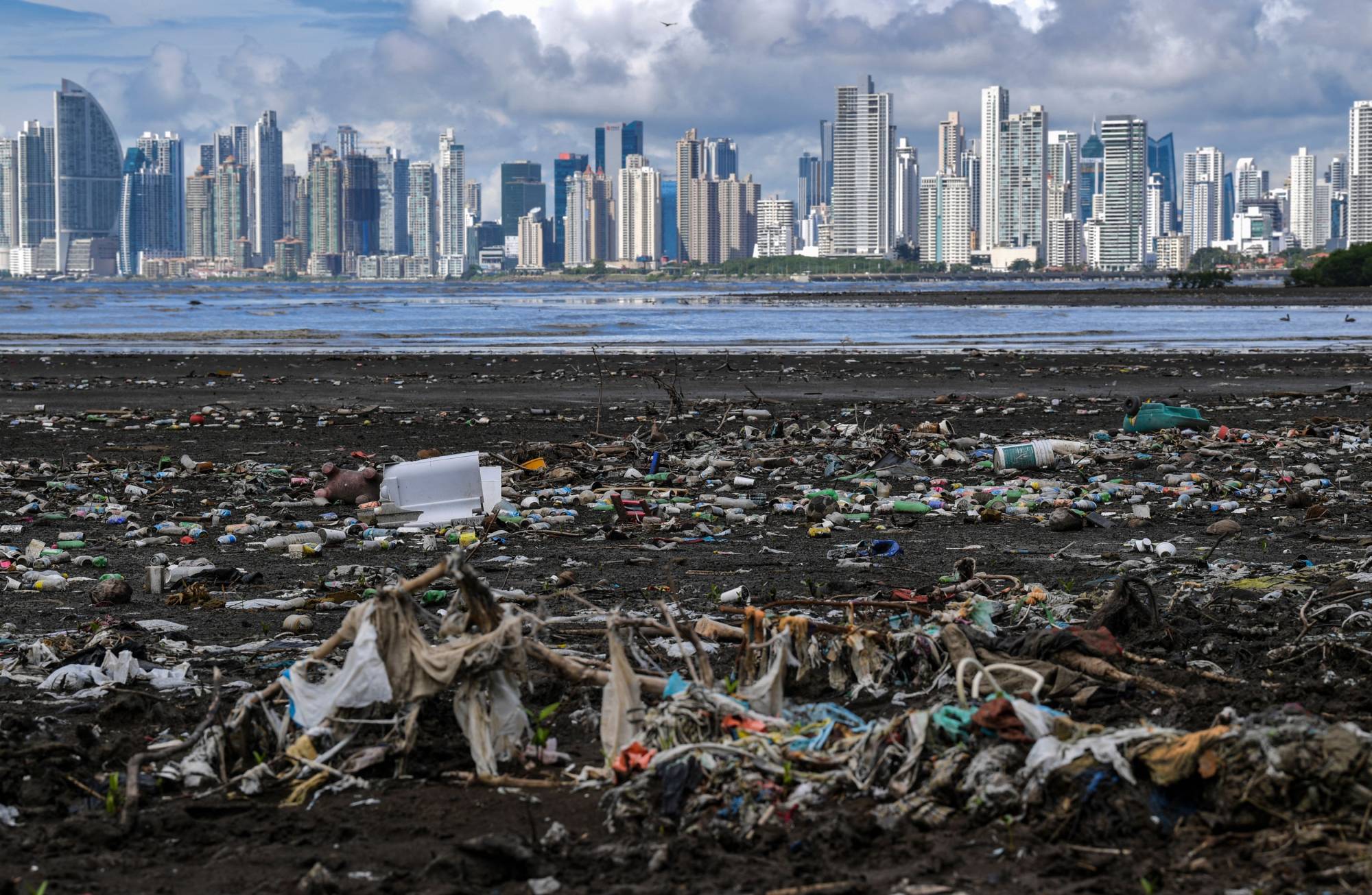Commodities
After rough start, UN plastic treaty talks end with mandate for first draft

After a rocky start to a week of negotiations, around 170 countries agreed to develop a first draft by November of what could become the first global treaty to curb plastic pollution by the end of next year.
Country delegations, NGOs and industry representatives gathered in Paris this week for the second round of UN talks toward a legally binding pact to halt the explosion of plastic waste, which is projected to almost triple by 2060, with around half ending up in landfill and less than a fifth recycled, according to a 2022 Organisation for Economic Co-operation and Development report.
Though the first half of the five-day negotiations was spent arguing over procedural issues, delegations split into two groups to discuss the range of control measures that can be taken to stop plastic pollution as well as whether countries should develop national plans or set global targets to tackle the problem.
By the session’s close on Friday, countries agreed to prepare a “zero draft” text of what would become a legally binding plastics treaty and to work between negotiation sessions on key questions such as the scope and principles of the future treaty.
The “zero draft” text would reflect options from the wide-ranging positions of different countries by the start of the next round of talks to be held in Nairobi, Kenya, in November.
“My appeal to you at the beginning of this session was that you make Paris count. You have done so by providing us collectively with a mandate for a zero draft and intersessional work,” said Jyoti Mathur-Filipp, executive secretary of the Intergovernmental Negotiating Committee (INC) on Plastic Pollution at the closing plenary.
The start of negotiations was bogged down by more than two days focused on the rules of procedure for the talks.
Saudi Arabia, Russia and China led objections to the treaty decisions being adopted by a majority vote rather than a consensus. A consensus would give one or a few countries the ability to block adoption.
Marian Ledesma, a campaigner with Greenpeace Philippines, told Reuters that if the INC process enables adoption by consensus instead of majority voting, it “will block a lot of important provisions.”
“Voting allows for as many states as possible to be able to support the treaty and allow us to move forward,” she said.
The issue has not yet been fully resolved and will come up at the next round of talks.
On Wednesday night, negotiators were able to move ahead on the substance of the talks, laying out their positions on whether plastic production should be capped, “problematic” plasitcs should be reduced and whether the treaty should set national targets or allow countries to set their own plans.
“We have no time to lose. Now we have less time to lose,” said the representative of Samoa on behalf of small island nations at the talks on Wednesday, adding that island states face the harms of poor waste management and overproduction of plastic.
An informal group of countries called the “High Ambition Coalition,” which includes EU countries as well as Japan, Chile and island nations, wants global targets to reduce plastic production and pollution as well as restrictions on certain hazardous chemicals.
Countries like the United States and Saudi Arabia have favored national plans rather than global targets to tackle the problem.
Tadesse Amera, co-chair of the International Pollutants Elimination Network, said with growing public concern about the plastic pollution crisis, the negotiations need to result in a strong agreement.
“The stakes are high, but we are optimistic by the growing awareness among delegates of the need for global controls on chemicals in plastics and for limits on plastic production,” he said.
Commodities
Oil prices rise; U.S. crude inventories plunge, Russia-Ukraine truce eyed
Commodities
India’s Reliance to stop buying Venezuelan oil over US tariffs, sources say
Commodities
Oil prices climb on Venezuela supply worries

 Forex3 years ago
Forex3 years agoForex Today: the dollar is gaining strength amid gloomy sentiment at the start of the Fed’s week

 Forex3 years ago
Forex3 years agoUnbiased review of Pocket Option broker

 Forex3 years ago
Forex3 years agoDollar to pound sterling exchange rate today: Pound plummeted to its lowest since 1985

 Forex3 years ago
Forex3 years agoHow is the Australian dollar doing today?

 Cryptocurrency3 years ago
Cryptocurrency3 years agoWhat happened in the crypto market – current events today

 World3 years ago
World3 years agoWhy are modern video games an art form?

 Commodities3 years ago
Commodities3 years agoCopper continues to fall in price on expectations of lower demand in China

 Economy3 years ago
Economy3 years agoCrude oil tankers double in price due to EU anti-Russian sanctions























